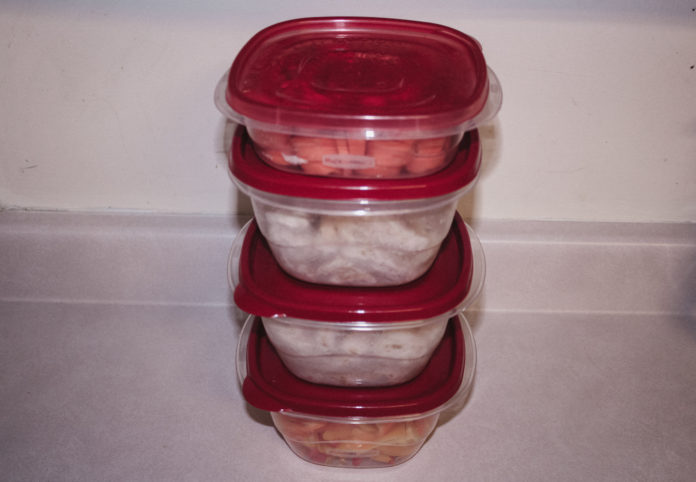
Eat your fruits and veggies, drink lots of water and don’t eat too much junk food. These are the food tips parents, teachers and coaches tell children.
While it’s good advice, there is much more that goes into nutritional choices for athletes. When it comes to the world of competition, everybody wants an edge.
Gillian Salmon is a registered dietician and contract academic instructor at the University of New Brunswick. She also works with the UNB Reds, giving presentations to athletes on sport nutrition.
“Three to five meals before your game, have a pretty carb-rich meal, so something like a bowl of oatmeal with some skim milk and a glass of orange juice,” she said. “A couple of slices of toast with some jam, or something like rice with veggies, a little bit of meat. Nothing too high in fibre.”
The body breaks down the carbohydrates into fuel and stores some of it away as a sugar called glycogen in the liver. When muscles need more fuel, the glycogen is transported to them.
A few hours before exercise, it’s important to begin hydrating and preparing the body for exertion. One additional tip Salmon recommended was to have something salty as well to keep water in the body.
Salmon said sport nutrition is important for athletes and can make a big difference.
“You want to make sure you’re starting your game or your big event optimally fueled, so you can put forth your best foot.”
Carbohydrates and glycogen keep the brain sharp and make a difference especially in agility-based activities.
As start time nears, Salmon recommended another carb-filled snack or a glass of juice. She said carbs and liquid are key right before an event.

If there’s a certain snack one may like to eat before or after the event, like Women’s National Basketball Association star Brittney Griner or sprinter Usain Bolt, Salmon said to stick with it — within reason.
“With a lot of high-level athletes, there’s a lot of ritual and superstition … whatever makes you feel more comfortable before you play, go for it, as long as it’s not chugging a bunch of beer,” Salmon said. “You want to make sure you’re not doing anything new … you don’t know how your body is going to react to it.”
If the competition has a break in the middle, refuel by trying a mouth rinse with an electrolyte-filled drink. While it may not seem effective, Salmon said carbohydrate absorption begins in the mouth. If one feels like they can’t swallow or eat anything, this may help. Grabbing a light fruit snack at this time will also help with energy levels and hydration.
Salmon also said athletes should have easily-digestible carbs halfway through competition, and if it’s possible, do a swish and spit with an electrolyte drink like Gatorade or orange juice.
After the game, in order to begin the recovery process in the body, Salmon brought up the four Rs of recovery.
“Rehydration, refueling carbs and glycogen, repairing and remodeling. Making sure you’re replacing any protein that would have been broken down in your muscles if it’s a lot of high-impact activity.”
Carbs and liquid in the hour and a half following activity can prepare the body for more exercise in the next day. It’s best not to eat a full steak after the game but rather have two or three smaller meals over the rest of the day after.
Salmon said what works for individual athletes varies, but it can’t be understated how important hydration and carbohydrate-filled fruits and vegetables are.
“The thing about diets is there is no one-size-fits-all, it’s really what’s working for you.”
